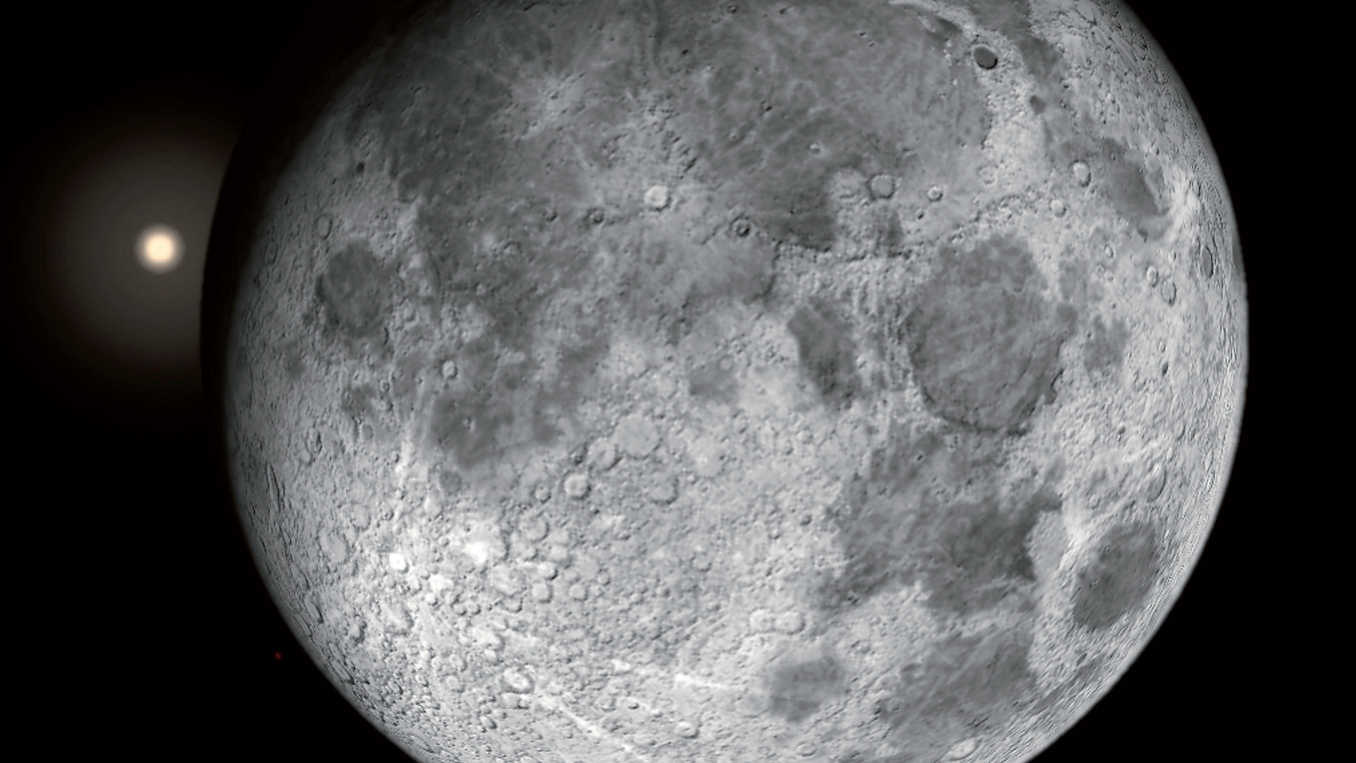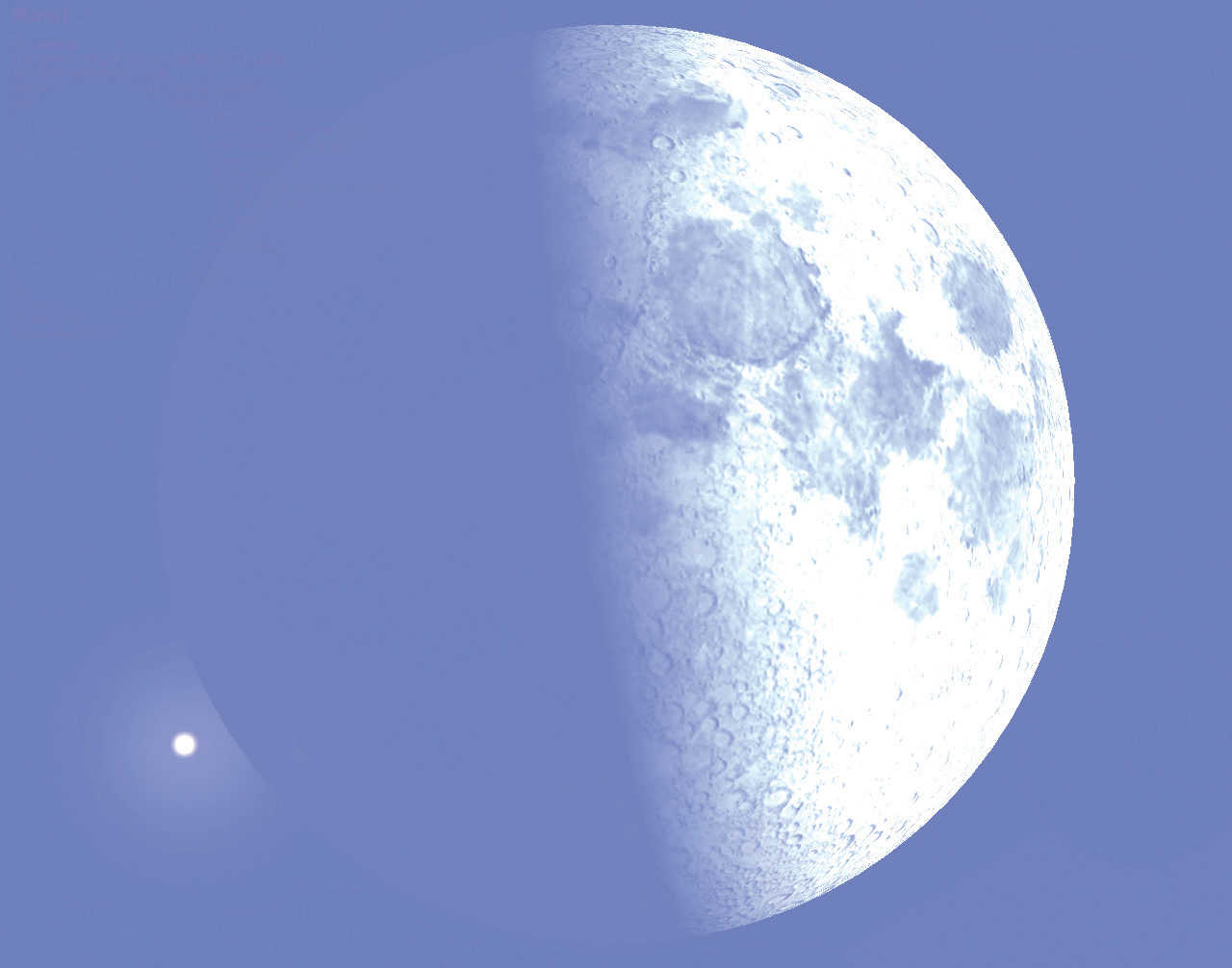The Moon meets the eye of Taurus
 The red giant, Aldebaran, shortly before an occultation by the Moon on 31 December 2017. Stellarium
The red giant, Aldebaran, shortly before an occultation by the Moon on 31 December 2017. Stellarium Observing occultations of stars by the Moon
The moon orbits the Earth in a little over 27 days. During this time, our satellite appears to move by a good hand-width eastward across the sky each day. So there is always a chance that it will occult a bright star. At the end of the year, on 31 December, this happens again: Aldebaran disappears behind the Moon.
 The occultation on 23 January 2018 occurred at sunset as the Moon was in its crescent phase. Stellarium
The occultation on 23 January 2018 occurred at sunset as the Moon was in its crescent phase. StellariumIn principle, the Moon occults fainter stars every night, as there are plenty of these in the night sky, and the Moon appears relatively large to us with an apparent angular diameter of 0.5°. However, the occultation of brighter stars is more rare and so is a fascinating celestial event that is definitely worth observing.
Fortunately, there are several bright stars in the area covered by the path of the Moon’s orbit: Regulus in the constellation of Leo, Spica in the constellation of Virgo, Antares in the constellation of Scorpio and Aldebaran in the constellation of Taurus. These four first-magnitude stars are close enough to the ecliptic to be occulted by the Moon from time to time. These occultations do not occur every month, because our satellite does not follow exactly the same path with each orbit. After a series of occultations, there are also ever-larger breaks until the next one occurs. The occultations are repeated in a 18.6 year cycle.
Suddenly gone
As stars are such a long way away, they do not appear as two-dimensional objects as planets do, but as point-shaped sources of light. In fractions of a second the occulted star suddenly disappears behind the oncoming eastern edge of the Moon, and reappears just as suddenly on the opposite side. The disappearance or appearance of the star at the unlit edge of the Moon is especially visually impressive. A rare and particularly exciting special case is a so-called grazing occultation. The star appears to run along a line just touching the edge of the Moon and may disappear and reappear several times as it is occulted by the mountains at the Moon’s edge.
Author: Lambert Spix / Licence: Oculum Verlag GmbH
